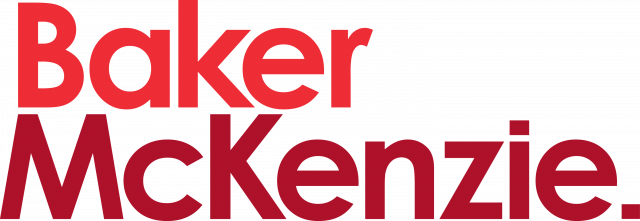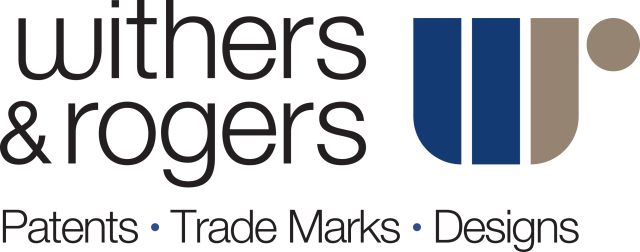| Time |
Session |
Panelists |
| |
Wednesday, June 19, 2024 |
|
| 6:00pm — 8:00pm |
Evening Welcome reception |
|
| |
Thursday, June 20, 2024 |
|
| 7:30am — 8:30am |
Buffet Breakfast & Sign-in |
|
| 8:30am — 8:45am |
Welcome and Announcements |
Ko, Michel, Waterland |
| 8:45am — 9:45am |
Session 1: What Artificial Intelligence (AI) is and how it is being used |
|
| |
In order to advise clients on the use of AI, attorneys need to understand what AI is. AI has been around for many years in industry, commerce, and the practice of law. Our cars have AI applications embedded in them. Our movie and music selections are influenced by AI. Engineers and scientists use AI to find technical papers and rank research results. The USPTO has reportedly deployed an AI-based auto-classification system for patent applications and AI-powered prior art search tools for patent examinations. In recent months, Generative AI (GenAI), a subset of AI, has propelled us into a world in which we can converse with an app to perform legal research, select relevant statutory and case law, and draft work product. In this “level-setting” introductory session for AI novices and sophisticated Intellectual Property practitioners alike, a panel of experts on AI and the law will explain the science and mathematics behind AI, distinguish the various flavors of AI, define terms that will be used frequently during this conference, and identify the relevant technical issues to be explored in depth in the subsequent sessions. |
Grossman*, Linna, Tobey |
| 9:45am — 10:45am |
Session 2: How AI is changing the legal profession in IP and beyond |
|
| |
Lawyers are facing novel issues every day as AI innovation explodes. New uses of AI impact not only the way we practice law but the jobs that we do. AI tools provide the opportunity for counsel to enhance their efficiency and effectiveness in multiple ways – whether by employing machine learning algorithms for the identification and categorization of data or using generative AI to automate baseline tasks, thereby permitting more time for deep (human) thinking. For patent litigators, the benefits of AI may include improved legal research, enhanced predictive analytics on legal strategies, and better litigation management. For patent lawyers, AI may support more robust prior art searching, facilitate the construction of claim charts, and assist in investigating design-around alternatives for non-infringement positions. In-house lawyers are finding themselves at the table in development and deal conversations far earlier than ever before as legal advice becomes increasingly strategic. Ad hoc working groups across multiple legal disciplines are coming together to collaborate and enable AI tools and features while mitigating and managing risk for what promises to be a long period of uncertainty. Our panel of litigators, in-house counsel, and IP experts will explore both the benefits afforded by AI as well as the novel issues that keep them awake at night. |
Cole*, Mazahery, Moncure, Waterland |
| 10:45am — 11:00am |
Morning Break |
|
| 11:00am — 12:00pm |
Session 3: Facing AI's validity, reliability, bias, and evidential challenges |
|
| |
AI, like any technical tool or method, requires evaluation to determine whether it works properly and is appropriate for use in particular settings. However, some AI applications have come under scrutiny for allegedly incorporating biases in their data and algorithms, producing undesirable, inaccurate, or inconsistent results. The performance of AI applications can be observed and measured, and if addressed properly, these applications can be improved or better managed. The dialogue leaders will discuss the performance of AI tools used for various legal functions, how we access their efficacy, and the challenges that AI presents to admissibility under Rule 104 of the Federal Rules of Evidence, undue prejudice under Rule 403, and authentication under Rule 901. |
Ahmadia, Grimm, Grossman, Kenton* |
| 12:00pm — 1:00pm |
Session 4: Professional responsibility issues raised by the use of AI |
|
| |
The use of AI by law firms, corporate legal departments, law enforcement, regulatory agencies, and the courts raises a host of ethical concerns, some of which are squarely governed by the Model Rules of Professional Responsibility. Rule 1.1 requires that lawyers understand the technologies they are using or involved in their cases, Rule 1.6 places a duty of confidentiality when using client data to train or query an AI application, Rules 3.3 and 3.4 require candor to the court and fairness to opposing parties when using AI to develop argument or evidence, Rules 5.1 through 5.3 require supervision of partners, associates, and assistants who may be using AI, and Rule 5.5 prohibits the unauthorized practice of law, which may be facilitated by chatbots. The dialogue leaders will analyze these rules and others to make recommendations for using AI ethically in the practice of law, including the patent application, examination, and challenge or enforcement processes. |
Blaustein*, Dehbozorgi, Girgis, Linna |
| 1:00pm — 2:15pm |
Lunch (provided) |
|
| 2:15pm — 3:15pm |
Session 5: Challenges to the patent law system presented by AI |
|
| |
The advent and use of AI has given rise to a host of issues concerning all aspects of patent law, including inventorship, ownership, patent application preparation and strategy, eligibility, written description and enablement, obviousness, attorney work product and discovery, and more. In this session, the dialogue leaders will discuss how AI may impact the delicate balance between innovation and the incentives to seek patent protection, and whether the companies controlling the AI platforms could disrupt that balance further. We will also delve into the issues surrounding AI-assisted inventions and what constitutes “significant human contribution” for patent eligibility purposes, AI-assisted patent applications, AI-fabricated prior art, and USPTO disclosure requirements. The dialogue leaders will explore how AI might impact the traditional validity analyses regarding Section 101 eligibility, the written description requirement, and the enablement requirement. How does the use of AI impact the definition of a person of ordinary skill in the art, and does that in turn change the obviousness analysis? Turning to litigation issues, the dialogue leaders will discuss whether the owners of the generative AI platforms will now be inundated with third-party discovery requests, and whether AI-generated analyses, such as pre-suit invalidity opinions, might be subject to discovery or protected by the attorney work product or the attorney/client privilege. |
Ferguson*, Kelly, Mullen, Powers, Selwyn, Sims, Strange |
| 3:15pm — 3:30pm |
Afternoon Break |
|
| 3:30pm — 4:30pm |
Session 5: (continued) |
|
| 4:30pm — 5:30pm |
Session 6: Trade Secret challenges and opportunities presented by AI |
|
| |
Under both federal and state trade secret laws, trade secret owners must take reasonable measures to keep their valuable information assets secret. The use of AI by employees presents a risk that trade secrets may be exposed, but that risk should be balanced against the advantages of using AI. The dialogue leaders will discuss ways to manage trade secret risk to effectively capitalize on the advantages of using AI. Conversely, trade secrets may be a method of protecting AI innovation. Unlike the time and scope limitations on the protection of software and algorithms under US patent law, trade secrets may better protect AI-related software, training data, input parameters, and confidential, internally deployed output. The dialogue leaders will discuss whether trade secret law, unlike patent and copyright law, can protect AI systems and AI-generated output. |
Bush, D'Amore, Galli, Pelletier*, Smith |
| 5:30pm — 7:30pm |
Reception (Guests Invited) |
|
| |
Friday, June 21, 2024 |
|
| 7:30am — 8:30am |
Buffet Breakfast & Sign-In |
|
| 8:30am — 9:15am |
Session 7: A "Fireside Chat" with U.S. Patent and Trademark Office Director Kathi Vidal |
| |
The Under Secretary of Commerce for Intellectual Property and Director of the United States Patent and Trademark Office (USPTO) – America’s Innovation Agency – offers her observations on the impact Artificial Intelligence will have on our Intellectual Property system and takes your questions. |
Vidal, Waterland |
| 9:15am — 10:15am |
Session 8: Copyright policy and law in the age of AI |
| |
Generative AI has challenged our fundamental notions of copyright, raising myriad questions. Is there an “author” or “artist” of a GenAI-created work? How much human involvement in the process is necessary for the work to obtain copyright protection, or should we revisit the notion that human involvement is required? Should the copyright owners of the data used to train the AI system have ownership rights in the output? Should the developers of AI systems be required to compensate owners of the input data, or does the fair use doctrine apply? Should the fair use doctrine adapt to accommodate the unique capabilities of AI in research, education, and creative expression? Can AI systems create derivative works that infringe on existing copyrights? How do we determine the level of originality in AI-generated output, especially when it mimics existing styles or incorporates copyrighted elements? How do we draw the line between “authorship” and “attribution”? Should related legal doctrines, such as moral rights, attribution, and rights of publicity, be considered? The dialogue leaders will explore these questions and more, inviting your input on the directions copyright law and policy might take to resolve them. |
Braun, Hines, Holte, Petersen, Russell* |
| 10:15am — 10:30am |
Morning Break |
|
| 10:30am — 11:15am |
Session 8: (continued) |
|
| 11:15am — 12:30pm |
Session 9: Legislative, judicial, administrative, White House, and international responses to challenges of AI, including deepfakes |
| |
The explosion of public interest in – and concern about – Artificial Intelligence has spawned a dizzying array of proposals for regulation to balance the needs for privacy, consumer protection, law enforcement, and open markets with the promises of technological innovation. States have already implemented various regulations of AI, and the federal government is considering more. At the same time, federal courts and administrative agencies are wrestling with the application of current laws, rules, and regulations to novel technologies. The bipartisan proposed NO FAKES Act of 2023 would protect the voice and visual likeness of all individuals from unauthorized recreations from generative artificial intelligence and proposed amendments to the Federal Rules of Evidence would address the authentication or challenge of evidence generated or modified by AI. This panel will address many of the issues raised in the prior sessions and allow regulators, legislators, and judges to candidly access where we are going with the governance of AI locally, nationally, and globally. |
Grimm, Kappler, Lavenue, Michel* |
| 12:30pm — 12:45pm |
Closing Remarks |
| 12:45pm |
Adjournment and Grab & Go Lunch (provided) |
|









